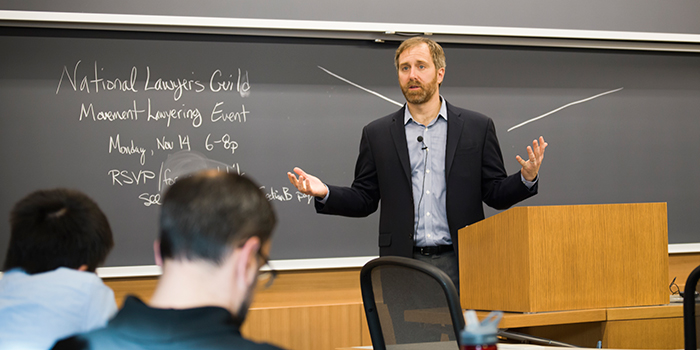The Real Reason the Investor Class Hates Pensions
Professor David Webber suggests the drive toward pension reform will limit the economic and political power of working class shareholders in this New York Times op-ed.
 No issue in America today better illustrates the divergent interests of working Americans and the 1 percent than pension reform. Substantial empirical evidence shows that America’s favored retirement vehicle — the 401(k), recently renounced by its own inventors — is grossly inadequate and will leave tens of millions of Americans with insufficient retirement assets. And yet states and cities are busy converting traditional pensions into these failing 401(k)s or equivalents, to the great benefit of money managers and the finance class.
No issue in America today better illustrates the divergent interests of working Americans and the 1 percent than pension reform. Substantial empirical evidence shows that America’s favored retirement vehicle — the 401(k), recently renounced by its own inventors — is grossly inadequate and will leave tens of millions of Americans with insufficient retirement assets. And yet states and cities are busy converting traditional pensions into these failing 401(k)s or equivalents, to the great benefit of money managers and the finance class.
Advocates of pension “reform” — which really means cutting or eliminating traditional pension funds — will tell you that such funds are a big drain on state and local budgets, since, as defined-benefit programs, they are obligated to pay workers a defined amount in their retirement. But that’s largely a question of political priorities; underfunded pensions are the result of, well, decades of underfunding pensions. The real reason for the attack on pensions goes deeper, and exposes the great and growing rift between America’s economic elite and everyone else.
Consider how we 401(k) holders behave as investors. How many of us thought to sue Wells Fargo after the Consumer Financial Protection Bureau revealed that the bank had created millions of fake credit card and bank accounts? Or to push our fund managers to do so for us? How many of us call up our fund managers after a quarter, a year or a decade in which we underperformed the Standard & Poor’s 500-stock index to renegotiate our fees? Or even to switch managers? How many of us even know how our funds performed relative to the S.&P. 500?
The answer to all of these questions is a number very close to zero. We 401(k) holders are the world’s ideal source of capital. We let ourselves be charged high fees that we do not understand, we accept poor returns quarter after quarter, we never sue to enforce our rights, we never vote as shareholders and we never tell our investment managers how we think they ought to vote. We are beyond passive; we are supine.
Related News
- Politics and Investment: Professor of Law David Webber discusses his research on how the fields interact to influence our society
- W.E.B. Du Bois Offers Lessons to this Generation of Citizen Activists